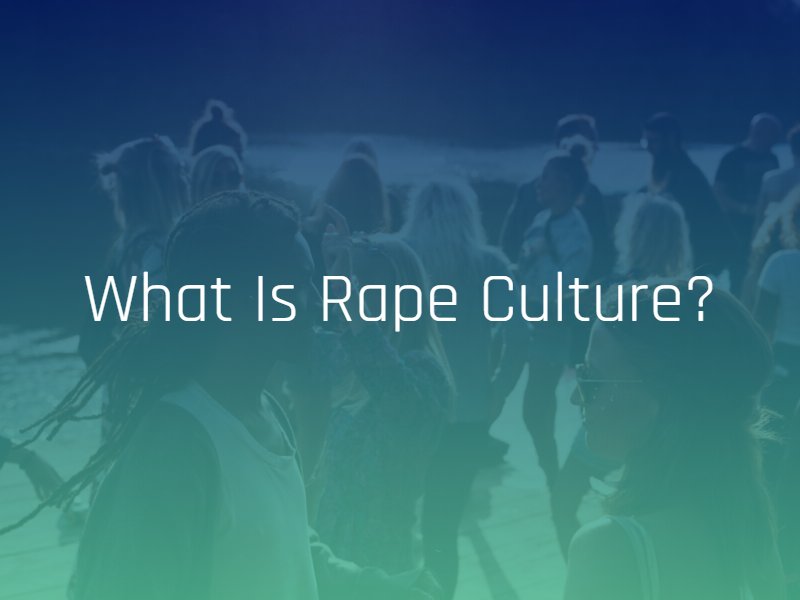Our society can perpetuate behaviors, statements, and systems that harm survivors of sexual assault significantly, making it difficult to report and seek justice for sexual violence. This is largely due to rape culture, a phenomenon where a society creates and fosters an environment in which rape is normalized and excused in our daily lives.
Because of rape culture, sexual violence can occur daily with little regard to the rights and well-being of the survivor. By working together to stand against sexual assault, we can help dismantle this system — and help survivors seek justice.
What Does Rape Culture Look Like?
The media and popular culture often perpetrate rape culture at high rates, glamorizing sexual violence in fiction and excusing rapists and perpetrators in the news. In addition, misogynistic language is common in popular media and in households across the United States, as well as the objectification of women’s bodies.
All of these actions contribute to the normalization of sexual violence, which harms survivors in all aspects. Since 90% of adult rape victims are women, these behaviors disproportionately affect women, cultivate misogynistic thoughts and actions, and encourage aggressive sexual behavior from men.
Examples of behaviors that contribute to rape culture include, but are not limited to, the following.
- Putting intense pressure on men to view women as sexual conquests, leading to aggressive sexual behavior in social situations
- Blaming the victim when he or she reports an instance of sexual assault
- Making sexually explicit jokes, especially rape jokes
- Claiming that the majority of women who report sexual assault are lying, when only 2% to 10% of reported assaults are false
- Putting the pressure on women to avoid rape, rather than teaching men not to commit rape
- Using significant amounts of gendered violence in movies, TV shows, and other forms of media
- Assuming that men do not suffer from sexual assault
How Can We Combat Rape Culture?
While rape culture is pervasive and deeply ingrained within our society, change begins with us. There are many actions you can take to stand up against rape culture, fostering healthy views on sexual relationships within your own family and community.
- Avoid victim-blaming. Many rape-affirming statements and beliefs are common in our society, and claiming that a victim was “asking for it” is a major perpetrator of rape culture. Understand that very few sexual assault cases are false and the vast majority of survivors choose not to report to police, listen to survivors, and do not use victim blaming language.
- Speaking of language, the words we speak help perpetuate rape culture. Avoid using misogynistic language that objectifies, degrades, or shames women. In addition, avoid using language that encourages aggressive sexual behavior from men and degrades men who are victims of sexual violence.
- Whenever you are in a romantic or sexual situation, be respectful of the other person’s physical space. Always communicate directly with sexual partners, and never engage in sexual activity without your partner’s free, informed, and direct consent. Never assume that consent is present, even if you are in a relationship with that person.
Hiring an Attorney for Sexual Violence
While we can all play a role in ending rape culture in the United States, its roots are deep and pervasive. If you are a survivor of assault and are facing barriers to seeking justice, contact a sexual assault attorney with experience advocating for victims’ rights as soon as possible.
Your lawyer can guide you through your legal options, helping you understand the civil and criminal pathways to justice. He or she can advise you on your best plan of action, and can guide you toward the resources you need to recover from the assault — even if you do not feel comfortable reporting to the police.
If you have not done so already, contact your lawyer as soon as possible to discuss your case and plan your path forward.

